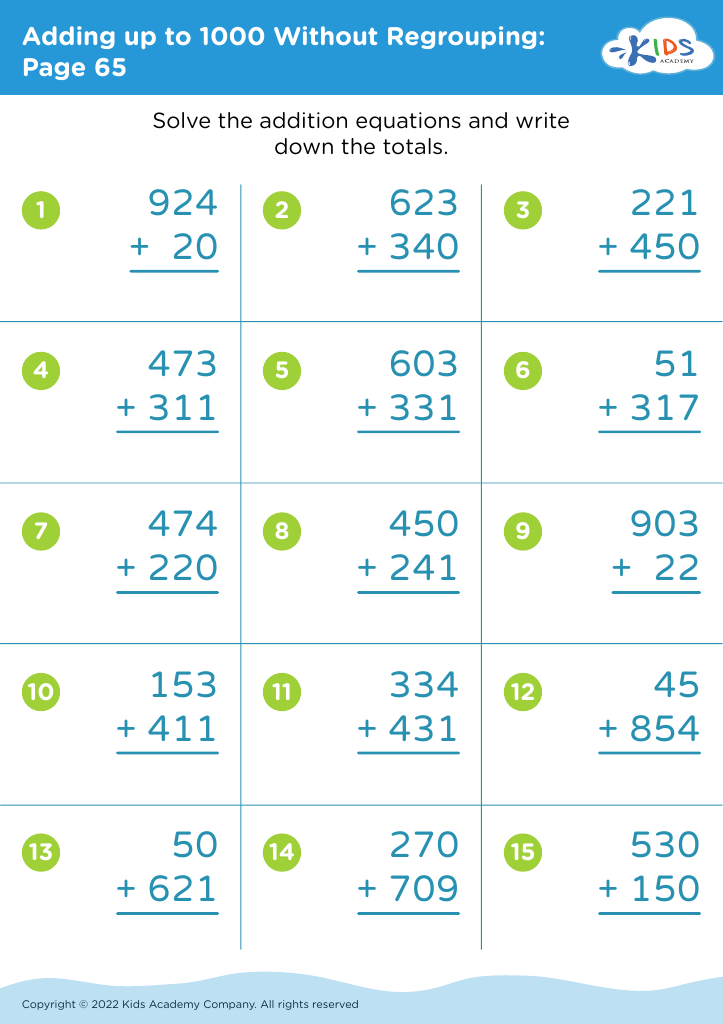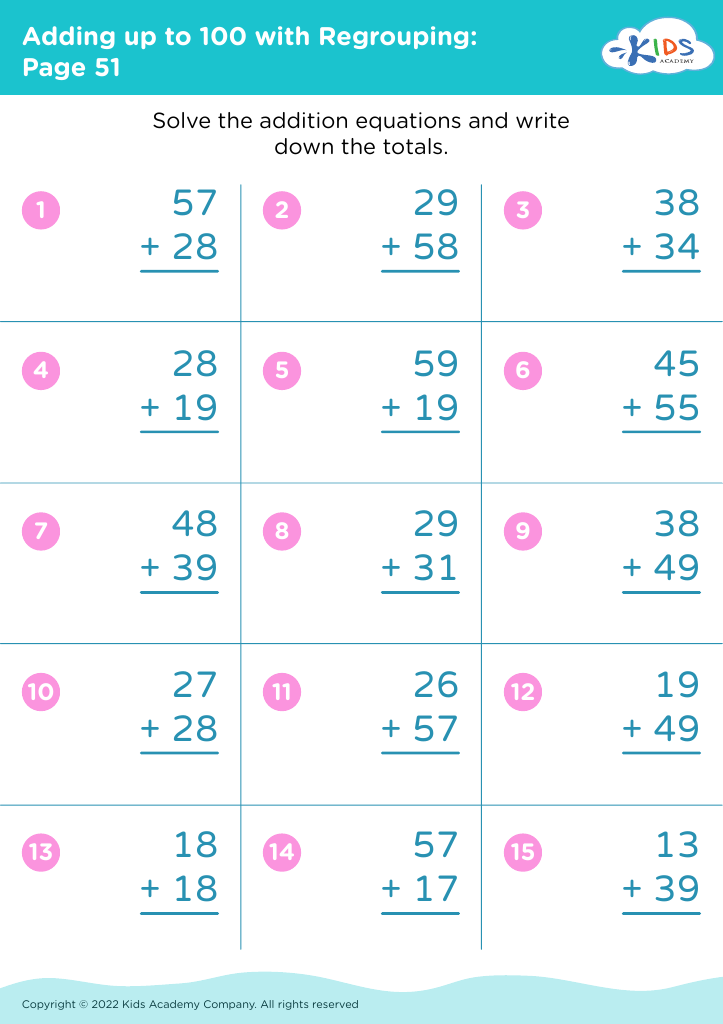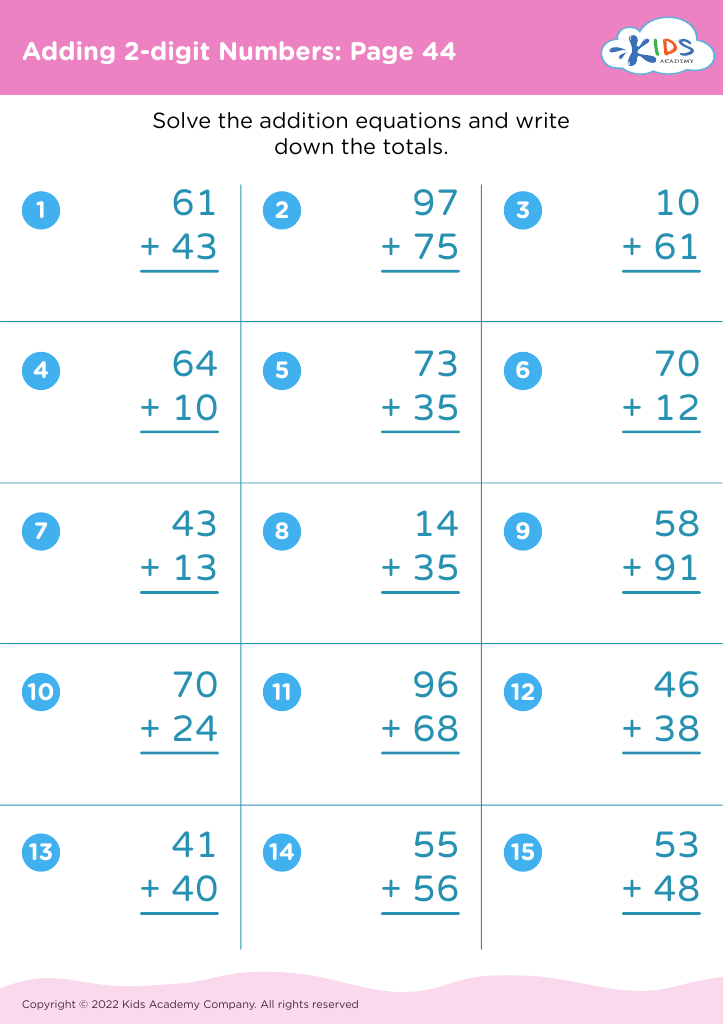Develop analytical thinking Addition Worksheets for Ages 3-8
3 filtered results
-
From - To
Welcome to our comprehensive collection of addition worksheets designed to develop analytical thinking skills for children aged 3-8. These engaging resources feature playful themes and varied activities that promote problem-solving and critical thinking while practicing addition. Each worksheet encourages young learners to explore numbers through games, puzzles, and interactive exercises, making math fun and approachable. By incorporating analytical challenges within their addition practice, kids will enhance their reasoning abilities and boost confidence in their mathematical skills. Explore our colorful, user-friendly worksheets today and watch your child thrive in their journey toward mathematical mastery!
Developing analytical thinking in children aged 3-8, especially in the context of addition, is crucial for several reasons. Firstly, analytical thinking equips young learners with problem-solving skills that are foundational for academic success. When children engage in addition exercises that require analytical reasoning, they learn to evaluate different approaches and methods, enhancing their capacity to analyze situations critically.
Additionally, fostering analytical thinking helps children understand mathematical concepts more deeply, rather than relying solely on rote memorization. It encourages them to grasp why addition works the way it does, which leads to a stronger overall mathematics foundation. Moreover, these skills contribute significantly to their day-to-day decision-making and reasoning in various scenarios beyond math.
For parents and teachers, nurturing this competence means investing in children's futures. Those who think analytically tend to perform better academically and are more equipped to tackle real-world challenges. Ultimately, promoting analytical thinking through addition at this formative age lays the groundwork for lifelong learning, enabling children to become confident, inquisitive, and well-rounded individuals. By prioritizing this development, parents and educators can ensure children possess the essential skills to navigate an increasingly complex world.






















